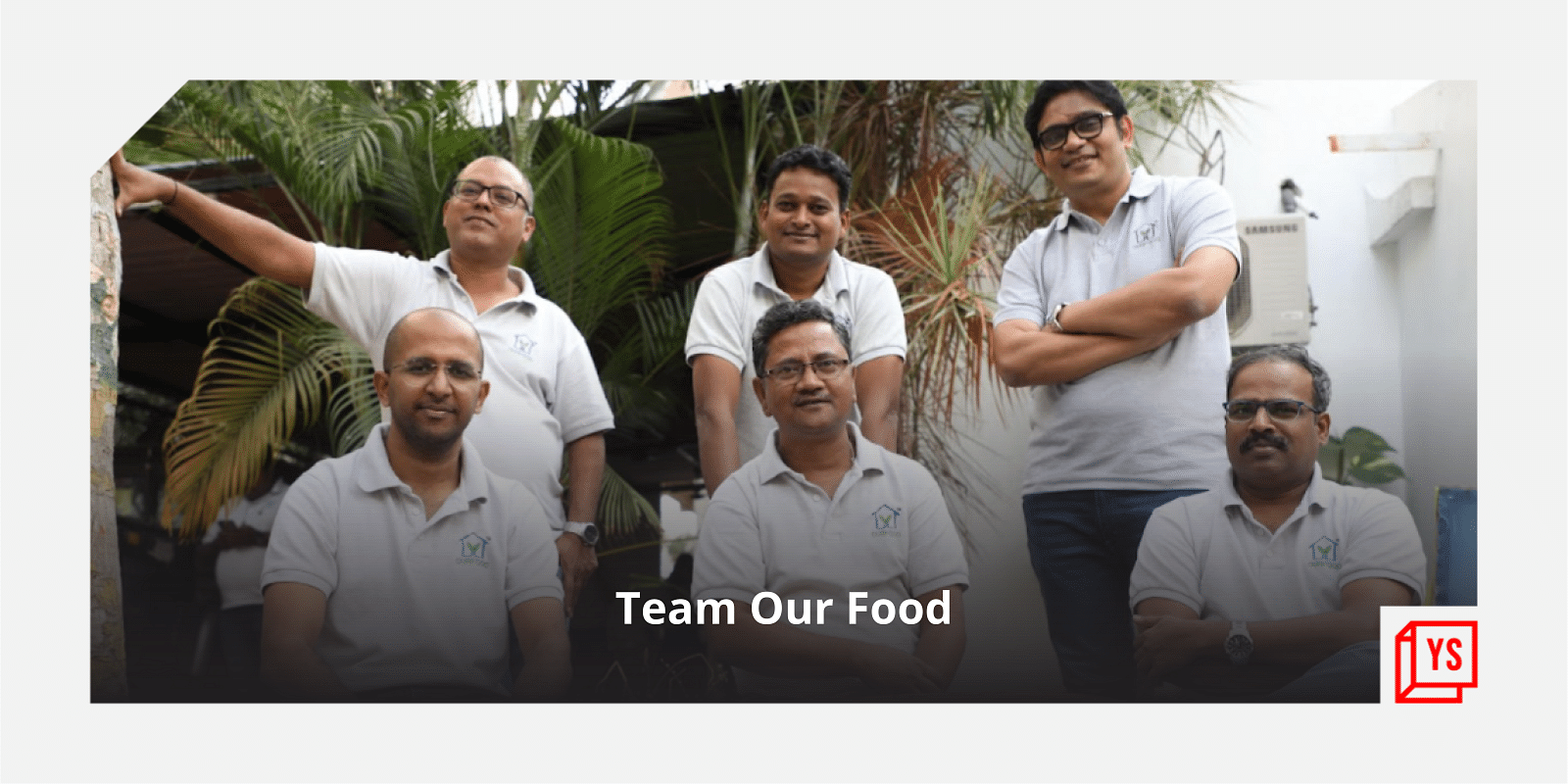One of the major challenges with centralised processing units in the agri sector is that they require huge quantities of raw material and the cost of procurement is also high as the unit depends on scores of middlemen, smaller vendors, and village aggregators to procure the requisite quantities of raw material.
“These challenges go up in the off-season when the unit does not get adequate supply,” says Bala Reddy, Founder and CEO, Our Food.
Started in 2016, the Hyderabad-based startup aims to provide an end-to-end solution to farmer entrepreneurs — right from setting up a micro processing unit, support in availing loan, training on processing and marketing of the processed output at remunerative prices for both the farmer franchises and the farmers.
“Our Food came up with its ‘small is beautiful’ concept. It takes Rs 7 lakh to set up a processing unit at the farm. The farmer is expected to invest Rs 3 lakh for the shed construction, and we assist with the rest via NBFCs,” says Bala.
Incubated at T-Hub in June 2016, the startup was also selected by Nasscom 10K Startups programme.
The journey and workings
Our Food initially reached out to multiple agriculture universities to understand the available food processing technologies and developed low-cost micro-processing units that could easily be deployed at farms in collaboration with food processing equipment manufacturing players.
“This is not only expected to decentralise the country’s food processing industry, which requires huge capital infusion, but also result in better income for farmers,” Bala says.
The startup identifies educated, unemployed rural farmers in the age group of 20 to 35 years, with a minimum education of 10th standard, and a minimum land holding of one acre. It these aspiring rural entrepreneurs build a shed (farmer franchise), supplies, and installs low-cost food processing machines, trains the farmers on value addition, procures the processed produce directly from the farmer franchises and sells through various channels with a margin of about 10 percent of the price.
“Value addition at farm level and market linkages ensures incomes to the tune of Rs 15,000 – Rs 25,000 per month to farmer entrepreneurs and around 10 percent increased price realisation for the end smallholder farmers,” says Bala.
So far, over 1,700 rural entrepreneurs have licensed Our Food farmer franchises, each operating a regional crop-specific processing unit that procures and processes raw material from over a hundred farmers from nearby villages. Each farmer franchisee is powered with an end-to-end tech-enabled solution, starting with the establishment of a single mini food processing unit, access to equipment financing, training in processing, and marketing of the processed output.
The startup is present in 13 states in India, including Andhra Pradesh, Telangana, Maharashtra, Madhya Pradesh, Rajasthan, Karnataka, and others. It has processing units for over 15 crops, including pulses, cereals, spices, groundnut, and plans to expand its crop portfolio.
The USP and social impact
According to Bala, Our Food’s USP lies in sustainable sourcing – food products are directly processed on farms by farmer franchisees and it is implementing AI, Blockchain, and other technologies for direct traceability to farmers.
It also claims to offer good quality products without any preservatives. The company claims to be supporting the government’s mission of doubling farmers’ income by offering fair prices for their produce.
Our Food is also empowering farmers to become entrepreneurs, adding value to farm produce in the process.
According to Bala, “We are contributing to the sustainable future of food by minimising post-harvest losses, generating village-level employment through our farmer franchise units, improving livelihood of people residing in villages, and improving the overall rural outlook through creation of on-ground processing infrastructure. The model improves the farmer’s share of consumer rupee and thereby contributes to the sustainable agriculture production.”
The startup is also committed to women empowerment by imparting necessary skills to increase household income.
The team
Bala holds a management degree specialised in agribusiness management from Indian Institute of Management (IIM), Ahmedabad, and brings in experience in handling businesses and successful exits in the infrastructure sector. He had earlier worked in renewable energy, finance, software development sectors. He worked as the Chief Marketing Manager for Mission Biofuels and handled multilingual farmers across seven states in India.
At present, the startup has a team of 350 employees.
Funding and monetisation
In January this year, Our Food raised $6 million (around Rs 45 crore ) in Series A funding. The funding round was led by existing investor 3Lines Venture Capital, and a new investor, C4D Asia Fund.
It said it plans to ramp up operations, increase manufacturing capacity, and vastly improve the agricultural food supply chain that sees an estimated $5 billion annual post-harvest wastage in India.
Our Food gets revenue in three ways – by sale of processed products, manufacture and sale of micro processing units to farmer franchises, and sale of agri-inputs and services to farmers through farmer franchises.
For FY 20-21, the startup generated a total revenue of Rs 80.9 crore with a net profit of Rs 2.25 crore. In H1 (FY 21-22), the revenue was Rs 173 crore and for FY 21-22, it is projected to be Rs 400 crore.
The challenges
As per Bala, Our Food has faced numerous challenges. Firstly, farmers did not trust the model in the beginning as no one came up with decentralised food processing before. They liked the idea of them becoming entrepreneurs, but did not believe it was possible.
Second, farmers did not have the capital to invest, and banks were unwilling to provide financing in the beginning as it was not a tried and tested model.
Bala experimented with different models and variations of the processing machine before arriving at the optimum level necessary for scale.
After setting up the farmer franchise, some farmers were unable to process raw material due to lack of working capital. Our Food had to partner with many financial service providers and government agencies to solve this issue.
The way ahead
Indian food and grocery retail is expected to be $1 trillion by 2025, as per RedSeer report, and Our Food plans to have a network of more than 20,000 farmer franchises across more than 27 states in India.
The startup plans to set up local distribution centres (one per 100 farmer franchises) to sell produce closer to the source of production to minimise costs out of the $600 billion retail market.
It is also looking to strengthen its tech capabilities, like a technology platform to enable sale of various processed products and advanced equipment for quality control and use of IoT, etc., for monitoring at all stages along with IT integrated processes across the supply chain.
“We are working on IT enabled traceability right from farm level for better control and compliance and integration of various financial services, including loan compliance and insurance products on a common platform,” says Bala.
Our Food is thinking about additional revenue through value added products like sale of farm inputs to more than 10 lakh farmers including seeds, fertilisers, and pesticides, among others. The startup will only act as a delivery channel and will not be responsible for direct selling to the farmers.
“We are designing low cost machinery for over 20 crops, including flour, besan, chana dal, chilli, turmeric, and groundnut, among others. We are also planning to export sustainable agricultural commodities to Europe and the Middle East, and low-cost machinery to Africa and South-East Asia,” says Bala.










